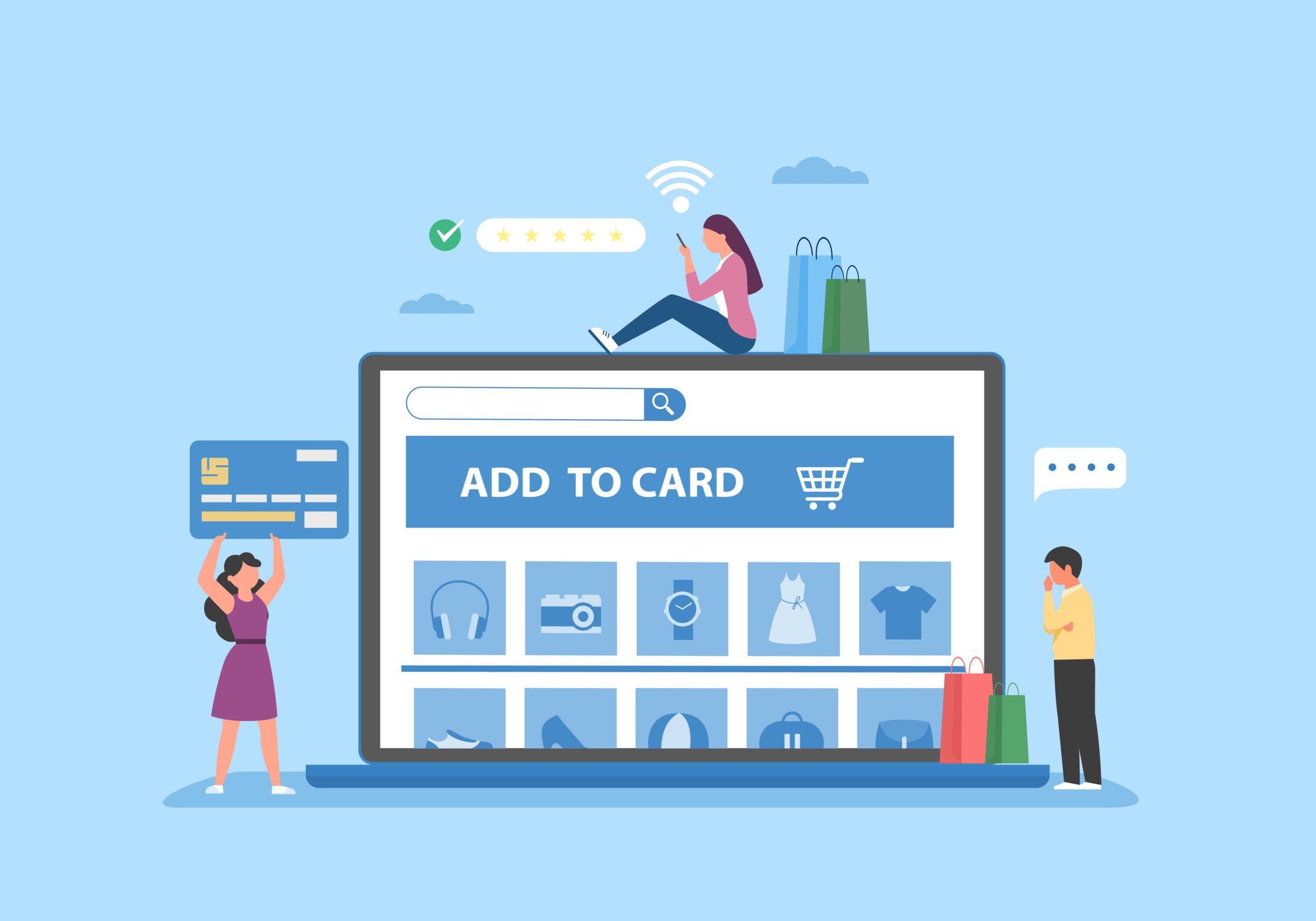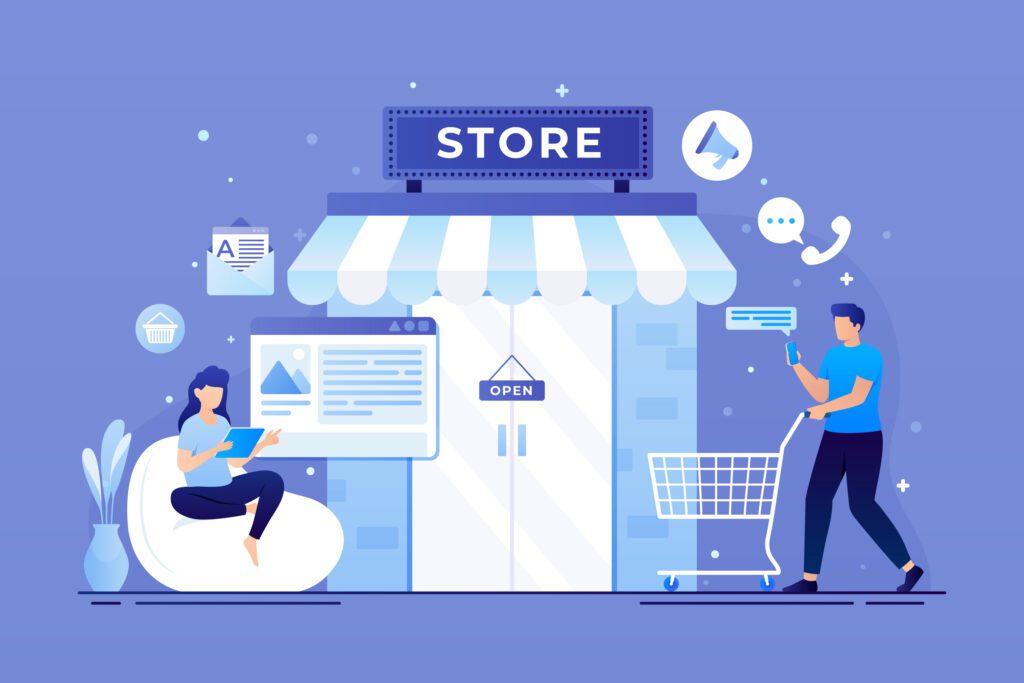Introduction
The Query of How can I Start an Online Store is increasing day by day. The internet and the rise in online shopping has made it possible for people to start their own online retail stores.
Understanding the Basics
What is an Online Store?
An online store is a website or platform where businesses sell their products directly to customers via the internet. Unlike brick-and-mortar retailers, these stores can be accessed from anywhere at any time using computers, smartphones, or other digital devices thus allowing consumers to evaluate and select items as per their desires. Generally, an online store will have the following features:

Why an Online Store?
Why Start an Online Store?
Entrepreneurs and businesses are attracted to starting online stores mainly owing to the many benefits associated with this concept in today’s digital era. Here are some reasons why you should an online store:
Larger Market
For instance, an individual can reach a customer anywhere in the world using online shop unlike a physical one which cannot cross its geographical barriers. Consequently, it increases your potential customers that may lead to global sales opportunities.
Reduced Costs of Operation
As compared to traditional business, opening an online store is cheaper. For example, you will have no rent expenses, utility bills or regular employees thus allowing more personnel and resources for product development and marketing.
Flexibility and Convenience
Online shopping can be done everywhere at any moment due to its non-stop operations. This suits every client busy schedule boosting both sales volumes and satisfaction levels since purchasers do not depend on opening hours.
Information Gathering Tools
These services provide analytical software that helps one monitor buying patterns of customers on their sites together with other company performance metrics such as site visits per month. This information is vital for managing a company making well informed conclusions about business strategies and improving consumer involvement experience by optimizing advertising approaches.
Scalability
In comparison to expanding a physical store, making an online business grow is usually simpler. This enables you to increase your inventories, add new products and enter more markets without the need for additional space.
Personalized Customer Experience
With options such as customer accounts, targeted emails campaigns and product recommendations, e-commerce platforms enable personalized marketing and customer experience. Sales can be boosted through loyalty of customers that comes about due to personalization.
Competitive Advantage
Giving people an opportunity to shop around via the internet gives them edge over others who do not provide such services or goods over the World Wide Web. It also allows wide range product display and utilization of digital advertising to entice clients thus gaining a higher competitive advantage.
Adaptability to Market Changes
Changes in market trends are rapidly accommodated by online stores as well as demands of consumers. Updating product listings, adjusting prices or launching fresh marketing campaigns can be done quickly and effectively where necessary
Research and Planning
Identifying Your Niche: How Can I Start an Online Store
What are you knowledgeable about? Reflect on your own passions, interests and expertise. This will not only make the business more enjoyable for you, but also increase your chances of success when selecting a niche that aligns with your interests and expertise.
Market Demand: The market has gaps, areas which are underserved or where products and services can solve specific problems for customers.
Analyzing the Market:
Market Size and Growth Trends: Examine the size of the market and its growth potential. Look out for industry reports, market studies as well as statistical data to understand market trends, forecasts and projections.
Customer Needs and Preferences: Understand customer needs, preferences, behavior among your target audience deeply.
Setting Up Your Online Store
Choosing a Platform
Simplicity of Use: In case you are new in e-commerce, go for an easy-to-use and intuitive platform.
Attributes and Uses: Consider the various e-commerce platforms in terms of their attributes and uses. For example, some important features include product management, order processing, inventory tracking, payment processes integration and shipping.
Assess each platform against your specific needs, preferences and long-term goals to make a decision.

Selecting a Domain Name
Reflect Your Brand: Select a domain name that mirrors what your brand stands for as well as its offerings.
Keep it Short and Simple: Go for a domain name which is short but simple to type, pronounce as well as remember. It should be free from hyphens or numbers that might confuse customers or drive them away from your website due to complex spellings.
Keywords Usage : Opt for keywords that have a bearing on your niche market, products or intended audience so as to increase search engine optimization capabilities on your online store.
Adding Products and Inventory Management: How Can I start an online store
Product Selection and Sourcing
Market Research: How Do I Start an Online Store? Carry out deep market research in your chosen niche to identify trends, demands, and market gaps. Understand the preferences, needs, and pain points of your target audience to enable you to choose products that appeal to them.
Identify Niche Products: Concentrate on offering specialized products that are consistent with your brand image and meet the needs of particular groups of customers.

Inventory Management Tools
When starting an online store, it is necessary to use efficient inventory management tools for streamlining business processes as well as providing support for scaling up. Examples include Shopify & WooCommerce which integrate inventory tracking within their platforms making them perfect for beginners due to their seamless integration with either ecommerce platform. TradeGecko (QuickBooks Commerce) and Zoho Inventory give enhanced functionality like multi-channel management or CRM integration which serve small or medium-sized business owners better.
Square for Retail has a user-friendly interface and integrates with Square’s payment processing methods; perfect if you’re selling both online and offline products. Cin7 & DEAR Inventory are suitable for businesses expecting explosive growth because they have B2B e-commerce capabilities alongside manufacturing features.
SkuVault takes care of stock-outs and improves distribution center efficiency, whereas Veeqo integrates with various advertising networks and postal carriers to streamline operations. Open-source and fully customizable, Odoo offers a flexible solution with multiple business applications that is perfect for new stores in need of customized inventory management.
Developing a Marketing Strategy
SEO Optimization
Search Engine Optimization (SEO) entails optimizing your online store in order to rank higher on search engine results. Here are ways on how to optimize your online store for SEO:
Keyword Research: Perform a keyword research to find out related search terms and phrases associated with your products. Discover high volume low competition keywords using keyword research tool that you can strategically incorporate into your website content, product descriptions, meta tags and URLs.
On-Page Optimization: Improve visibility and relatability for target keywords by optimizing on-page elements such as title tags, meta descriptions, heading tags and image alt text. To ensure that the structure of your website is user-friendly it should be easy to navigate through with a clear site architecture which facilitates internal linking thus enhancing crawlability and indexation by search engine crawlers.
Quality Content Creation: Generate quality content that provides solutions, answers queries or piques interest for those individuals most important to you. This could involve writing blog posts, articles, product guides, tutorials and other types of content that add value while establishing subject-matter expertise within your niche.

Social Media Marketing
Social Media Marketing is an effective way to create awareness about your brand; interact with your audience. Obtain leads; drive traffic to the site; increase sales conversions etc.
Platform Selection: Identify the social media means that are relevant in reaching your target audience. Concentrate on major platforms where the typical consumer interacts frequently like Facebook Instagram Twitter LinkedIn.
Using social media for marketing is a way of promoting your brand, interacting with the market and gaining leads. As well as pushing traffic towards your site and upping sales calls and so on.
Choosing Platforms: Identify what social media can be used to reach your audience. That is why you need to focus on popular platforms that are often visited by ordinary customers.
Overcoming Challenges
Competition
Starting an online store means handling several significant problems that require definite strategies to overcome them. First of all, it is important to find a suitable niche which requires market research. In order to identify products that are in demand. Coming up with an inclusive business plan is important in defining your strategy and objectives. You can make the process of coming up with a user-friendly website easier by using sites. Doing effective inventory management is crucial, which can be made easy through specialized software. To drive traffic to your stores, you must employ a multi-channel marketing approaches. That includes SEO, social media and email marketing. Great customer service entails having strong systems in place with live chatbots and numerous contact options.
Customer Retention
Reliable payment processing relies on reputable gateways such as PayPal or Stripe. While ensuring SSL certification for secure data exchange over internet. Compliance with legal and regulatory requirements requires thorough investigation and sometimes legal advice from experts. Efficient handling of logistics and shipping involves use of trusted carriers plus clear delivery alternatives. Finally, scaling your business is done through continuous performance analysis. Investing more in marketing, increasing product line or tapping into new markets. By addressing these challenges systematically, you set yourself up well for success in building an online store that grows successfully
Conclusion
In summary, there are several key steps necessary for success when launching an online store. Firstly, carrying out a comprehensive market research will enable you to know who your target audience. Secondly, choosing the right e-commerce platform is critical because it will influence how your store. Designing an attractive webpage with easy navigation system draws customers in and keeps them.
Marketing strategies like social media advertising and search optimization are instrumental in ensuring that there is traffic on one’s site. Lastly, focusing on customer satisfaction by providing excellent service and support leads to repeat business and positive reviews. These steps can help you answer confidently questions such as “how can I start an online store”. Thus starting a successful e-commerce business.



Pingback: How to Start an Online Store with No Inventory: Exclusive Guide - 100% Free Guest Posting Website
Pingback: What is dropshiping business: Everything You Need to Know - Tech Biz Nex